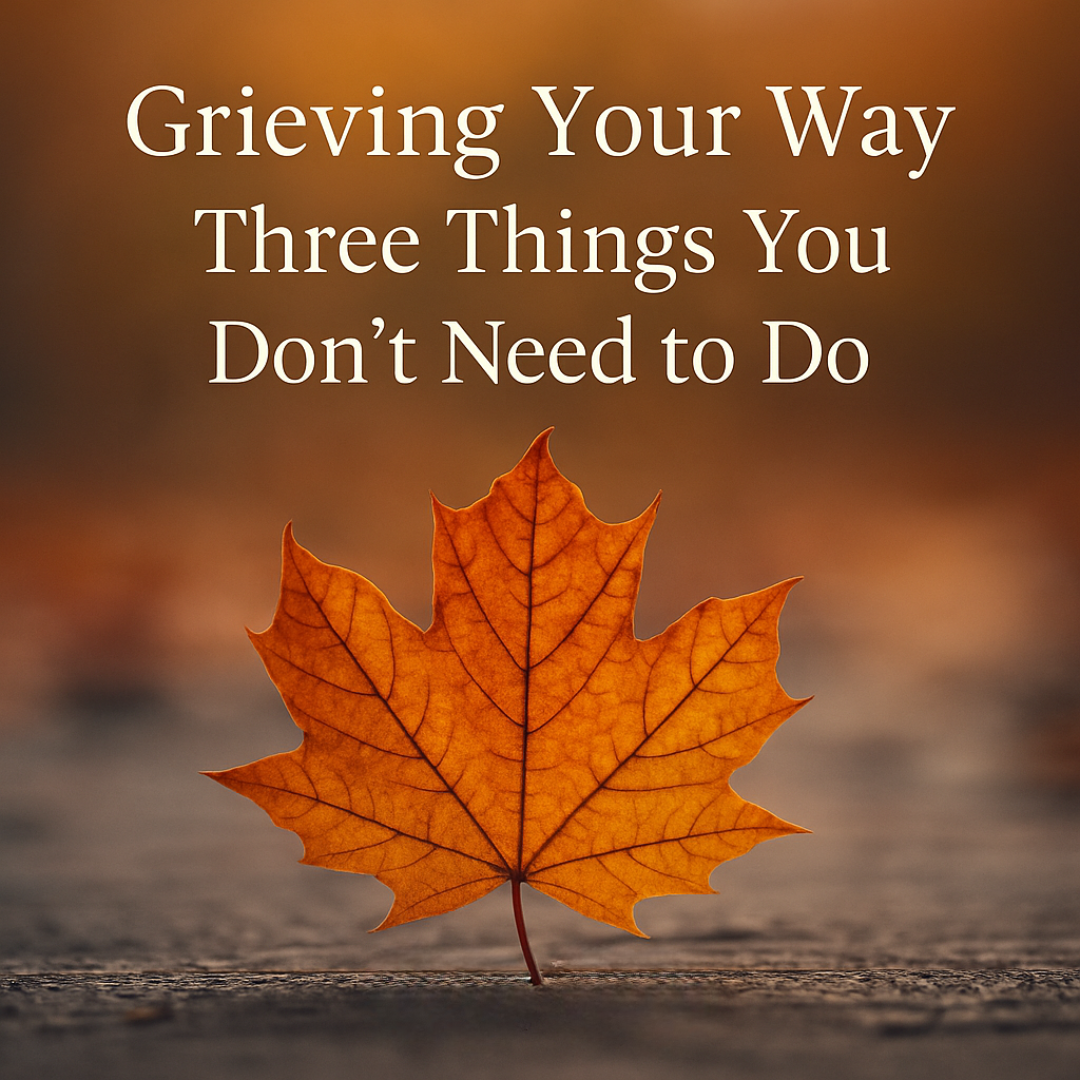Grieving Your Way: Three Things You Don’t Need to Do
How embracing vulnerability and releasing expectations can bring freedom in your grief journey
Grief is a deeply personal journey. No two stories are the same, and yet society often hands us unspoken “rules” about how we should handle loss. In this episode of A Better Way to Heal podcast, Isa and I talked about three things you do not have to do while grieving. These truths bring freedom whether you are grieving the death of a loved one, the end of a relationship, an unfulfilled dream, or even the brokenness you see in the world around you.
1.You do not have to take care of everyone else.
When loss strikes, many people instinctively shift into caretaker mode. Maybe you’ve seen it in TV shows or even in your own family: the person who is grieving immediately starts making sure everyone else is comfortable and managing their emotions. For parents or natural caregivers, it can feel second nature to put everyone else’s needs first. But in the middle of grief, that pattern leaves your own heart unattended. You have permission to step back and tend to your pain.
The truth is, grief leaves you with limited emotional and physical energy. Adding the burden of caring for everyone else only deepens exhaustion. Well-meaning friends often say, “Let me know what I can do,” but even answering that can feel overwhelming. Sometimes the best gift is for someone to quietly meet a practical need such as delivering a meal, doing a load of laundry, or simply sitting in silence. Of couse, do this without expecting the grieving person to coordinate or instruct. As Isa and I discussed, friends also need to guard against making someone else’s grief about themselves. Comments like “Why didn’t you call me?” or “I would have been there for you” place the focus in the wrong direction. If you are grieving, you do not owe anyone else emotional caretaking. Your healing has to come first.
2. You do not have to pretend you are fine.
Our culture often rewards stoicism, but that expectation can be crushing. Pretending to be okay when you are not only delays healing and prevents honest connection. Grief requires safe spaces where you can admit, “I’m not okay right now, and I need time.” That statement does not make you weak. It makes you human. And discerning who is safe to share with is part of protecting your healing journey.
In our conversation, Isa and I talked about how grief fluctuates. You might wake up one day with the strength to run errands or laugh at a memory, only to be undone by a song or a familiar smell the next. That does not mean you are “going backward.” It means grief ebbs and flows. Allowing yourself to be real about those shifts can open the door to deeper support from those who truly understand. Pretending may feel easier in the moment, but it cuts you off from the comfort of authentic connection. Vulnerability with safe people builds strength and resilience. It reminds you that your value does not come from appearing “together” but from being honest about where you are.
3. You do not have to follow a timeline.
Perhaps the most liberating truth is that grief does not come with an expiration date. The familiar “five stages of grief” — denial, anger, bargaining, depression, and acceptance — were never intended to be a rigid checklist. You may cycle through them in a single day or revisit certain emotions years later. Isa and I both shared how the loss of our mothers continues to resurface in unexpected ways, even decades later. Anniversaries, holidays, or simple daily moments can bring a fresh wave of sorrow. That is not failure; it is part of carrying love forward in the midst of loss.
This truth also means that new layers of grief may surface as your life changes. A child’s milestone may make you ache for the parent who is not there to celebrate. A shift in the world may trigger a lament for what you never had. As I shared on the podcast, some even grieve things that were never realized — an unfulfilled dream, the life they hoped to live, or the state of our broken world. These forms of grief are real and valid. Healing comes not from “getting over it” but from finding ways to make meaning. That might look like honoring memories through traditions, creating art that reflects your story, or holding on to small reminders — like the way I keep my mother’s poem close through my pottery. Grieving on your own timeline allows space for both sorrow and meaning to coexist.
A Better Way Guide
This guide isn’t just a resource; it’s a companion for your healing journey.
Grief and Faith
Scripture gives us examples that normalize grief rather than shaming it. Jesus wept at the tomb of Lazarus, even knowing resurrection was moments away. After John the Baptist’s death, Jesus withdrew to be alone with the Father, showing that solitude and lament are part of faithful living. The Psalms are full of raw cries to God — honest, unfiltered, and deeply human. Faith does not erase grief; it gives us a safe place to bring it.
Final Thought

